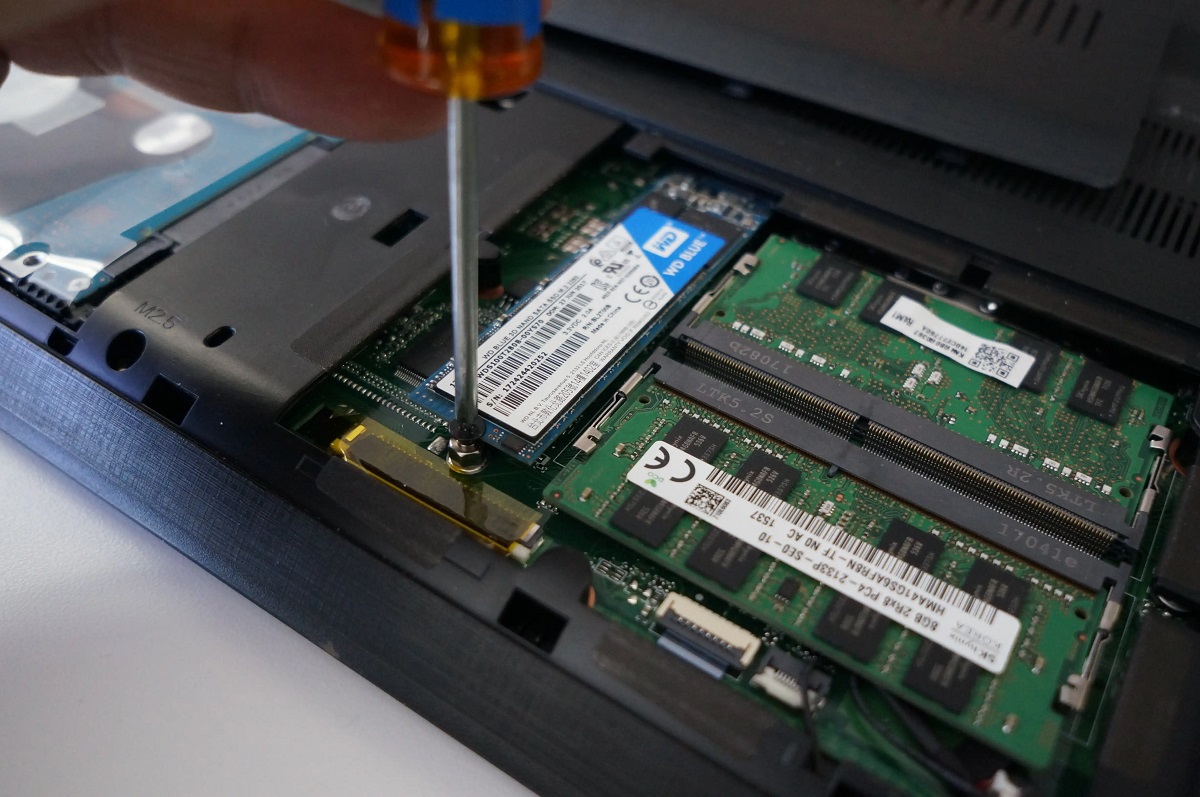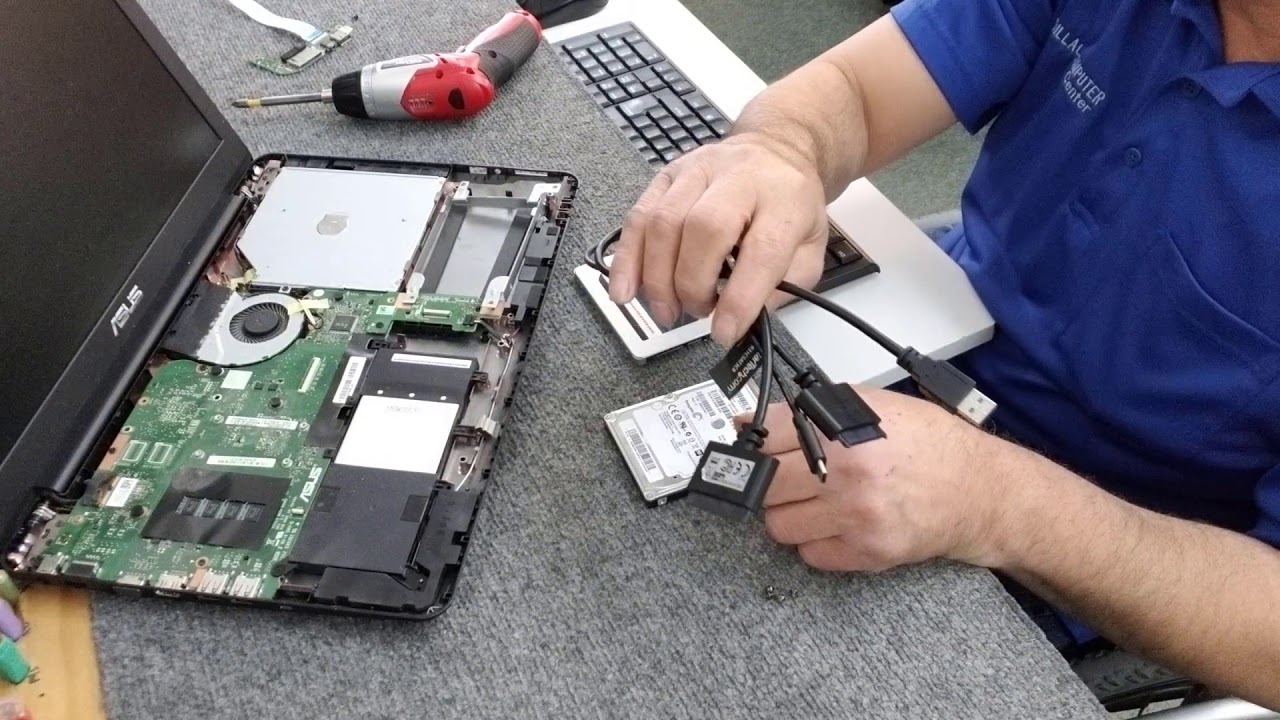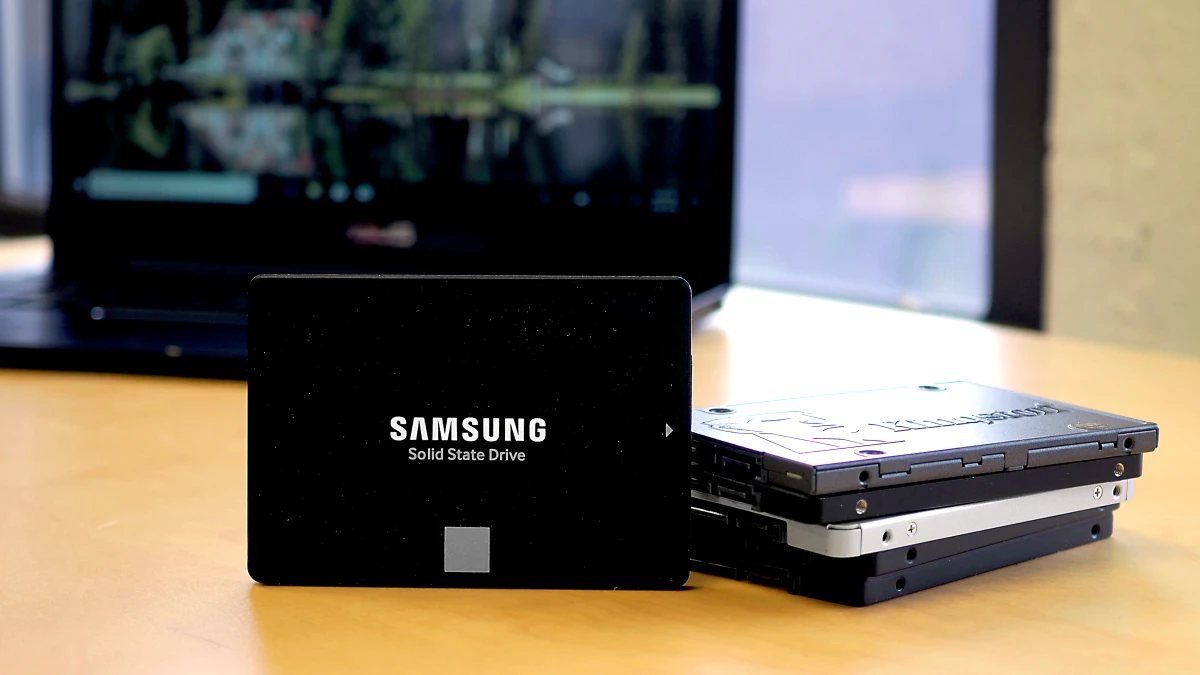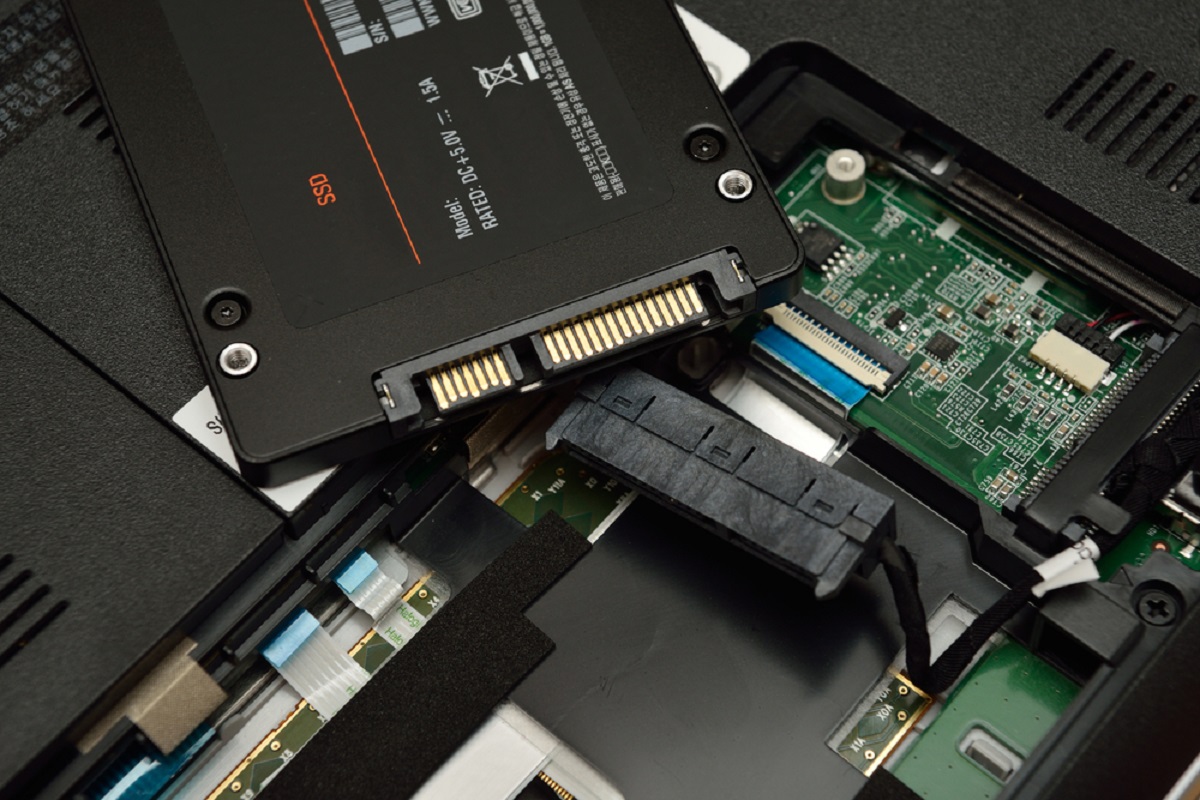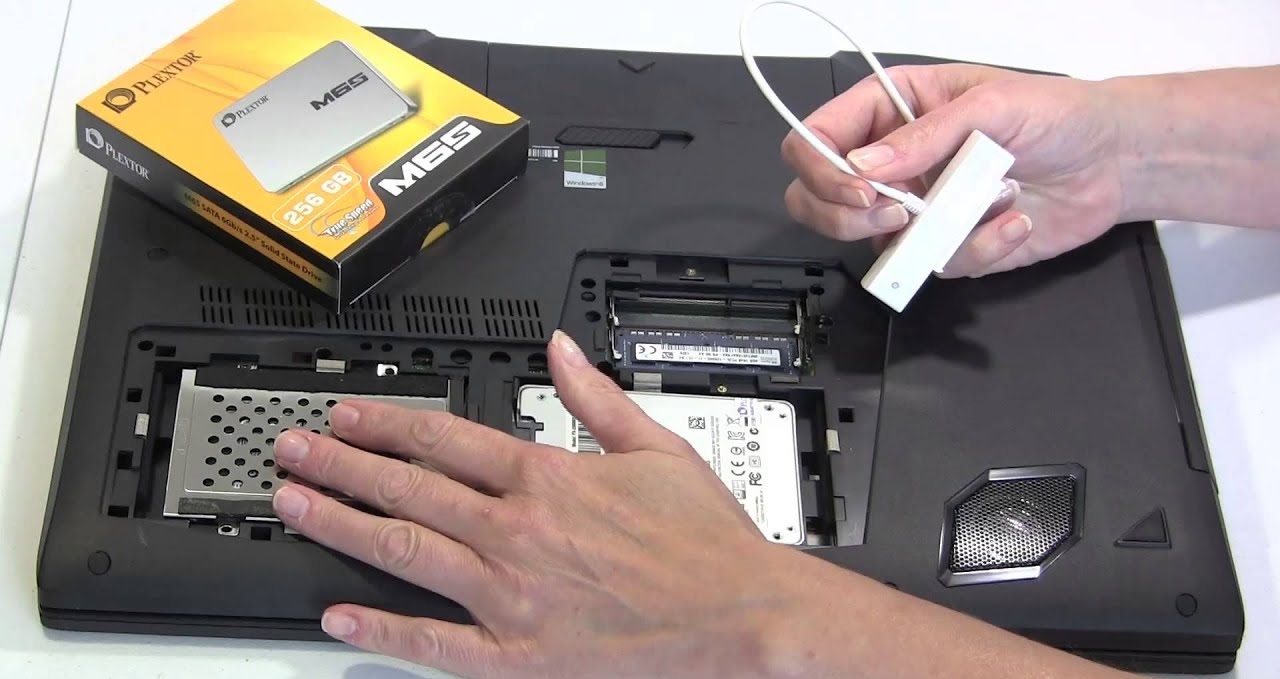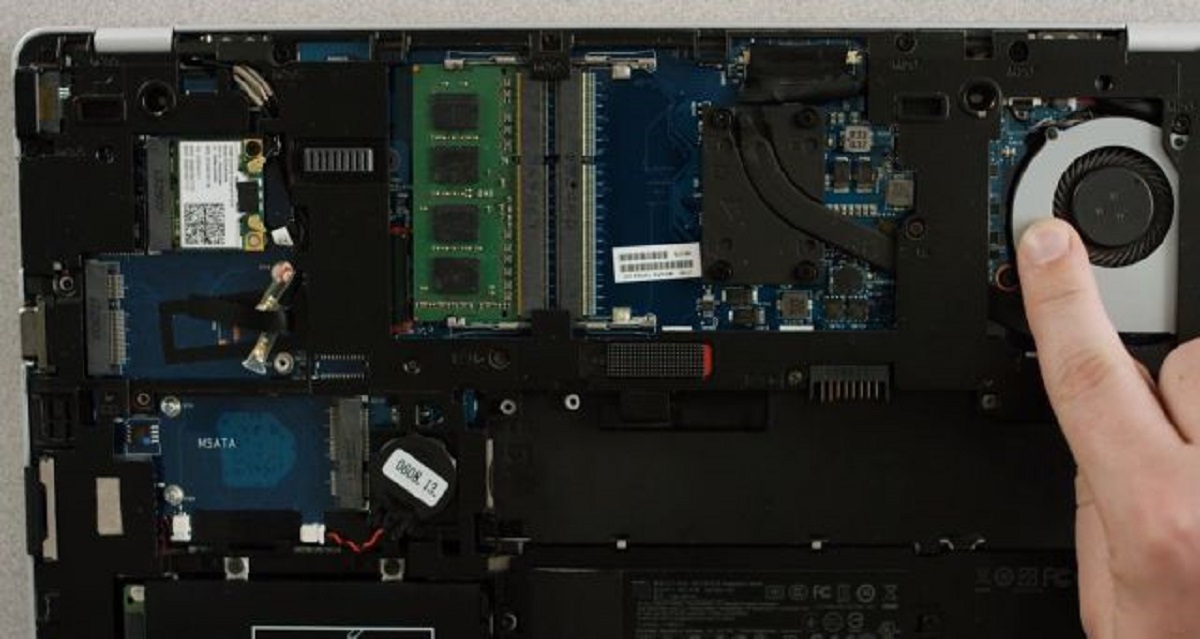Introduction
Welcome to the world of technology where laptops have become an essential part of our lives. Whether you are a student, a professional, or a casual user, having a reliable and high-performing laptop is crucial. When it comes to choosing a laptop, one of the key factors to consider is the storage technology it uses. Traditionally, laptops have relied on Hard Disk Drives (HDD) for storage. However, there is now an alternative that is taking the computing world by storm: Solid State Drives (SSD).
In this article, we will explore the world of SSD laptops and understand what sets them apart from their HDD counterparts. We will delve into the benefits of using SSDs in laptops, including improved performance and speed, enhanced power efficiency and battery life, as well as increased durability and reliability. We will also discuss how SSD laptops compare to HDD laptops in terms of noise and heat generation, and help you understand why SSD laptops are developing a strong following among tech-savvy users.
So, if you are considering purchasing a new laptop or upgrading your current one, stick around to discover the wonders of SSD technology and why it might be the game-changer you’ve been looking for.
What is an SSD Laptop?
Before we dive into the benefits of SSD laptops, let’s first understand what an SSD laptop actually is. Unlike traditional HDD laptops, which use spinning magnetic disks to store and retrieve data, SSD laptops utilize solid-state drives. These drives are composed of interconnected flash memory chips that store data electronically without any moving parts.
The use of solid-state drives in laptops brings numerous advantages. One of the key benefits is the speed at which data can be accessed. Unlike HDDs, which rely on physical read/write heads and spinning disks to locate and retrieve data, SSDs can access data almost instantaneously. This results in significantly faster boot times, file transfers, and application loading times, providing a seamless and responsive user experience.
Additionally, SSD laptops offer increased reliability and durability. Since SSDs lack moving parts, they are less prone to mechanical failures and damage caused by shocks or drops. This makes them a great choice for users who are always on the go or tend to be a bit rough with their devices. Furthermore, SSDs have a lower failure rate compared to HDDs, giving users peace of mind that their data will be safe and secure.
Another advantage of SSD laptops is their power efficiency. SSDs require less power to operate compared to HDDs, which means improved battery life for laptops. This is particularly beneficial for users who need their laptops to last long hours without needing to be plugged in. Whether you’re a student who relies on a laptop for studying or a professional constantly on the move, the longer battery life offered by SSD laptops can have a significant impact on your productivity.
Overall, an SSD laptop offers a significant upgrade in terms of speed, reliability, durability, and power efficiency compared to traditional HDD laptops. The next section will delve deeper into the specific benefits of using SSDs in laptops, allowing you to make an informed decision when it comes to choosing your next computing device.
Benefits of SSD Laptops
Now that we understand what an SSD laptop is, let’s explore the specific benefits that come with using this storage technology. From improved performance to increased durability, SSD laptops offer a range of advantages that make them a compelling choice for many users.
One of the key benefits of SSD laptops is their exceptional performance and speed. SSDs have significantly faster read and write speeds compared to HDDs, resulting in quicker boot times and faster application launches. Whether you’re editing videos, running resource-intensive software, or multitasking between several applications, an SSD laptop will provide you with a smooth and lag-free experience.
Another advantage of SSD laptops is their power efficiency and extended battery life. SSDs consume less power compared to HDDs, which translates to longer battery runtime. With an SSD laptop, you can enjoy extended periods of productivity without having to constantly search for a power outlet. This makes SSD laptops ideal for students, business professionals, and travelers who rely on their laptops for extended periods.
Durability is another factor that sets SSD laptops apart. Since an SSD has no moving parts, it is less susceptible to physical damage caused by accidental drops or shocks. HDDs, on the other hand, contain spinning disks and mechanical components that can fail under harsh conditions. With an SSD laptop, you can rest assured that your data and files are better protected, minimizing the risk of losing important information due to hardware failure.
In addition to improved performance, extended battery life, and enhanced durability, SSD laptops offer a significant advantage in terms of noise and heat generation. Traditional HDD laptops often generate noise due to the spinning of the disks and the movement of the read/write heads. On the other hand, SSDs operate silently and generate minimal heat. This not only creates a quieter and more comfortable working environment, but it also helps to keep the laptop cool and prevent overheating issues.
In summary, SSD laptops provide undeniable benefits in terms of performance, power efficiency, durability, and noise generation. When compared to HDD laptops, SSDs offer faster speeds, longer battery life, increased durability, and a quieter user experience. Whether you’re a gamer, a graphic designer, a student, or a professional, an SSD laptop can significantly enhance your computing experience and improve your overall productivity.
Performance and Speed
When it comes to laptop performance, speed is a crucial factor. SSD laptops excel in this area, thanks to the inherent design of solid-state drives. Unlike traditional HDDs, which rely on mechanical components to read and write data, SSDs use flash memory technology, resulting in significantly faster data access.
The speed advantage of SSD laptops is evident in various aspects of their performance. Firstly, SSDs provide faster boot times, enabling you to start up your laptop in a matter of seconds. This is in stark contrast to HDD laptops, where the spinning disks and mechanical components can take considerably longer to initialize and load the operating system.
The performance boost is not limited to boot times alone. SSDs also provide faster application loading times, allowing you to launch software programs instantaneously. Whether you’re running intensive productivity software, editing multimedia content, or playing graphics-intensive games, an SSD laptop enables smooth and seamless performance with minimal loading or lag time.
Furthermore, SSDs have faster data transfer rates compared to HDDs. This means you can copy files, transfer data, and back up your files at lightning-fast speeds. Whether you’re working with large media files or transferring a sizable project, the increased data transfer speed of an SSD laptop greatly improves your workflow efficiency.
Additionally, SSD laptops offer superior performance when it comes to multitasking. With quicker read and write speeds, SSDs can handle simultaneous data access and provide a more responsive experience. This means you can seamlessly switch between multiple applications, run several tasks simultaneously, and experience minimal slowdowns or freezes.
In summary, the performance and speed benefits of SSD laptops are undeniable. The faster boot times, quicker application loading, improved data transfer rates, and efficient multitasking capabilities make SSD laptops a preferred choice for those who prioritize high-performance computing. Whether you’re a professional working with resource-intensive software or a gamer seeking smooth gameplay, an SSD laptop will undoubtedly deliver the speed and performance you need to excel in your tasks.
Power Efficiency and Battery Life
Power efficiency and battery life are important considerations when choosing a laptop. In these areas, SSD laptops have a clear advantage over their HDD counterparts. The technology used in solid-state drives allows for lower power consumption, resulting in improved energy efficiency and longer battery life.
SSDs require less power to operate compared to HDDs because they don’t rely on mechanical components like spinning disks and moving read/write heads. This means that the power consumed by an SSD laptop is significantly lower, allowing it to make the most of its battery capacity.
The lower power consumption of SSDs directly translates into longer battery life. With an SSD laptop, you can expect to enjoy extended periods of productivity without having to worry about finding a power outlet. This is particularly beneficial for students, business professionals, and frequent travelers who need their laptops to last throughout the day.
Moreover, the power efficiency of SSD laptops helps reduce the overall heat generated by the system. HDDs, while in operation, generate more heat due to the spinning disks and moving components. This not only causes the laptop to run hotter but also requires additional cooling mechanisms, which can consume more power. SSDs, on the other hand, generate minimal heat, resulting in a cooler and more efficient laptop overall.
In addition to the longer battery life and reduced heat generation, SSD laptops also offer quicker resume times from sleep mode or hibernation. SSDs can retrieve data faster, allowing the laptop to wake up quickly and resume tasks almost instantaneously. This means you can get right back to work without wasting time waiting for your laptop to start up.
In summary, power efficiency and extended battery life are significant advantages of SSD laptops. The lower power consumption of SSDs not only improves energy efficiency but also helps to prolong the laptop’s battery life. Whether you’re working on-the-go or simply want the convenience of a long-lasting battery, an SSD laptop ensures that you can stay productive without constantly searching for a power source.
Durability and Reliability
When it comes to durability and reliability, SSD laptops have a clear advantage over traditional HDD laptops. The design and construction of solid-state drives make them inherently more robust and less prone to failure.
One of the key factors that contribute to the durability of SSDs is their lack of moving parts. Unlike HDDs, which rely on spinning disks and mechanical read/write heads, SSDs store data electronically in flash memory chips. This means there are no delicate components that can be easily damaged by physical shocks or drops. As a result, SSD laptops are more resilient and can withstand rough handling during transportation or everyday use.
The absence of moving parts also means that SSDs are less susceptible to mechanical failures. HDDs, with their spinning disks, are susceptible to disk failures and head crashes, which can lead to data loss. In contrast, SSDs have a significantly lower failure rate, making them more reliable for storing your valuable data and files.
In addition to their physical durability, SSD laptops also offer increased resistance to environmental factors. Traditional HDDs are sensitive to extreme temperatures, humidity, and magnetic fields, which can negatively affect their performance and life span. On the other hand, SSDs are not affected by these external factors, ensuring reliable operation even in challenging environments.
Another aspect of reliability is the speed and efficiency of data retrieval. HDDs may experience degradation in performance over time due to fragmentation and file system issues. SSDs, on the other hand, maintain consistent performance levels throughout their lifespan. This means you can rely on an SSD laptop to deliver fast and efficient data access, regardless of how long you’ve been using it.
In summary, SSD laptops offer enhanced durability and reliability compared to HDD laptops. The absence of moving parts, increased resistance to physical shocks, lower failure rate, and immunity to environmental factors make them a more robust choice. Whether you’re a frequent traveler, a student who needs a laptop for heavy daily use, or simply someone who values data integrity, an SSD laptop provides the peace of mind that your device will perform reliably and safeguard your important files.
Noise and Heat Generation
Noise and heat generation are important considerations when it comes to choosing a laptop. Nobody wants to work in a loud and uncomfortably hot environment. In this regard, SSD laptops have a significant advantage over traditional HDD laptops.
HDD laptops often generate noise due to the spinning of the disks and the movement of the mechanical read/write heads. This noise can be distracting, especially in quiet environments or during meetings and lectures. On the other hand, SSDs have no moving parts, resulting in silent operation. With an SSD laptop, you can enjoy a noise-free working environment, allowing you to focus on your tasks without any unwanted distractions.
In addition to the noise factor, HDD laptops tend to generate more heat compared to SSD laptops. The spinning disks and mechanical components inside HDDs produce heat as they operate. This can lead to laptops running hotter, causing discomfort during prolonged use or potentially impacting performance and longevity. SSDs, being solid-state devices, generate minimal heat, providing a cooler overall system temperature.
The reduced heat generation of SSD laptops offers several benefits. Firstly, it helps to keep the laptop cool and prevents overheating issues that could potentially damage internal components. It also contributes to a longer lifespan for the laptop by minimizing wear and tear caused by excessive heat exposure. Additionally, a cooler laptop can be more comfortable to use, especially when working on your lap or in warm environments.
The lower heat generation of SSD laptops also contributes to improved energy efficiency. When a laptop runs cooler, it requires less power for cooling mechanisms, allowing the battery to last longer. This is especially advantageous when using the laptop on the go or in situations where access to a power source may be limited.
In summary, SSD laptops provide a quieter and cooler computing experience compared to HDD laptops. The absence of moving parts in SSDs eliminates noise generated by spinning disks and mechanical components. Additionally, the reduced heat generation of SSDs results in a cooler laptop, improving overall comfort and system performance. Whether you need a laptop for quiet environments, extended use, or improved energy efficiency, an SSD laptop is the ideal choice.
Comparison with HDD Laptops
Now that we have explored the benefits of SSD laptops, it is essential to compare them with their HDD counterparts to understand the key differences and make an informed decision about which type of laptop is right for you.
One of the primary differences between SSD and HDD laptops is storage technology. HDD laptops use traditional hard disk drives, which consist of spinning magnetic disks and mechanical read/write heads. These components make HDD laptops more susceptible to physical damage from drops or shocks, increasing the risk of data loss. SSD laptops, on the other hand, utilize solid-state drives with no moving parts, making them more durable and reliable.
Another significant difference is the speed and performance. SSD laptops offer remarkable speed and responsiveness due to their faster read and write speeds. Boot times, application loading times, and data transfer rates are significantly improved on SSD laptops compared to HDD laptops. This results in a smoother user experience with quicker access to files and faster task execution.
Power efficiency and battery life are also noteworthy when comparing SSD and HDD laptops. SSDs consume less power than HDDs since they have no spinning disks or moving parts. This lower power consumption translates into longer battery life for SSD laptops, making them more suitable for portable use and situations where a power outlet may not be readily available.
Durability is another aspect where SSD laptops outshine HDD laptops. The lack of moving parts in SSDs makes them more resistant to physical shocks and drops, reducing the risk of data loss and hardware failure. HDDs, on the other hand, are more prone to mechanical failures and damage caused by physical impacts.
In terms of noise and heat generation, SSD laptops have an advantage. Without moving parts, SSDs operate silently and generate minimal heat. HDD laptops, with their spinning disks and mechanical components, can produce noticeable noise and generate more heat during operation.
Price is one consideration where HDD laptops have an advantage. HDDs tend to be more affordable compared to SSDs, especially when it comes to larger storage capacities. If storage space is a priority and budget is a concern, a higher-capacity HDD laptop may be a viable option.
In summary, SSD laptops offer superior performance, increased durability, enhanced power efficiency, and a quieter operating experience compared to HDD laptops. However, HDD laptops may be a more cost-effective choice when it comes to larger storage capacities. Consider your specific needs, such as speed, durability, battery life, and budget, when deciding between an SSD and HDD laptop to ensure you select the option that best suits your requirements.
Choosing the Right SSD Laptop
Now that we understand the benefits of SSD laptops, it’s essential to know how to choose the right one that meets your specific needs and preferences. Here are some factors to consider when selecting an SSD laptop:
1. Storage Capacity: SSDs come in various storage capacities, so it’s crucial to determine how much storage space you require. Consider your usage needs, such as storing large files, multimedia content, or extensive software applications, and choose a capacity that provides ample space for your requirements.
2. Performance and Speed: Look for an SSD laptop with high-speed read and write capabilities for faster boot times, application launches, and data transfers. Consider the type of SSD used and the associated performance specifications to ensure optimal performance.
3. Battery Life: If you need a laptop with long-lasting battery life for on-the-go productivity, pay attention to the power efficiency of the SSD laptop. Check reviews and specifications to find laptops known for their efficient power consumption.
4. Form Factor and Weight: Consider the form factor and weight of the SSD laptop if portability is essential to you. Look for sleek and lightweight models that are easy to carry around without compromising on performance.
5. Build Quality: SSD laptops should have a robust build quality to ensure durability and resistance against physical impacts. Look for laptops with sturdy materials and solid construction to ensure longevity.
6. Price: Compare prices of different SSD laptops to find a model that fits your budget. Keep in mind that while SSD laptops may have a higher upfront cost compared to HDD laptops, they offer long-term benefits in terms of performance and reliability.
7. Additional Features: Consider any additional features that may be important to you, such as touchscreen capability, backlit keyboard, high-resolution display, or upgraded graphics. Choose a laptop that offers the features you need to enhance your computing experience.
By considering these factors, you can narrow down your options and find the perfect SSD laptop that not only meets your storage and performance requirements but also fits your budget and lifestyle. Research and read customer reviews to ensure you make an informed decision and choose the SSD laptop that will serve you well for years to come.
Conclusion
After exploring the world of SSD laptops and understanding their numerous benefits, it is clear that they offer a significant upgrade in terms of performance, durability, power efficiency, and user experience compared to traditional HDD laptops. The use of solid-state drives in laptops has revolutionized the computing industry, providing faster speeds, extended battery life, increased reliability, and quieter operation.
SSD laptops excel in performance, with faster boot times, quicker application loading, and improved data transfer rates. This translates to a seamless and efficient user experience, whether you’re a student, professional, or casual user. The durability and reliability of SSD laptops are also noteworthy, with a lower risk of mechanical failure and damage caused by physical shocks. This ensures that your important data and files are secure, even in challenging environments.
In addition, SSD laptops are power-efficient and offer longer battery life, making them ideal for on-the-go productivity. The reduced heat generation and noise-free operation enhance comfort, allowing for a more enjoyable working environment. While SSD laptops may have a higher upfront cost, their long-term benefits in performance, reliability, and durability outweigh the initial investment.
When choosing an SSD laptop, consider factors such as storage capacity, performance, battery life, form factor, build quality, price, and additional features. By understanding your specific needs and preferences, you can select the perfect SSD laptop that meets your requirements.
In conclusion, SSD laptops have transformed the laptop industry with their superior performance, durability, power efficiency, and sleek design. Whether you’re a student, professional, or casual user, an SSD laptop will undoubtedly enhance your computing experience and help you achieve new levels of productivity. Embrace the benefits of SSD technology and enjoy the remarkable advantages it offers in the world of laptops.







